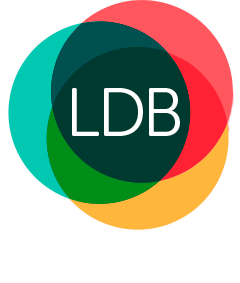Federal budget 2021: Superannuation update
May 20, 2021

In the federal budget 2021 announcement, the treasurer delivered their second ‘pandemic budget’ which continues to focus on Australia’s economic recovery via several key spending measures.
A key feature arising from this year’s federal budget, however, has been the opportunities created around the management of superannuation for both those starting out, as well as older Australians.
Below is a summary of some of the key changes that relate to superannuation and wealth management:
First home buyers and low-income earners
First home buyers
Housing affordability continues to be a hot topic in Australia and, once again, it remained a key focus for many of the budget announcements by the government.
Two proposed changes in the 2021 budget include:
- From July 1 this year, the ‘Family Home Guarantee’ allows single parents with dependent children to buy a home with just a 2 per cent deposit, with the government set to guarantee the remaining 18 per cent required by many lenders.
- Furthermore, the government announced an increase in the superannuation voluntary contributions releasable under the existing First Home Saver Super Scheme from $30,000 to $50,000 from July 1, 2022 which was originally introduced as part of the 2017-18 budget. The scheme allows first home buyers to make voluntary contributions to their super which they can then put towards a house deposit.
More superannuation for low-income earners
For those earning under a minimum income threshold of $450 per month, their employers are not required to pay the legislated superannuation guarantee, which is currently 9.5 per cent.
The government has proposed to remove this cap in a measure that is expected to boost the superannuation savings of lower income Australians, albeit at the cost of take-home pay.
Changes for older Australians
Not to be left out, there were also a number of key announcements proposing changes to existing superannuation laws for many older Australians and self-funded retirees, including:
Removing the work test
Under current rules, access to the concessionally taxed world of superannuation requires those over the age of 67, to make a voluntary contribution to their fund must satisfy a work test prior to and during the financial year of the contribution.
From July 1, 2022, this work test will no longer apply to individuals aged 67 to 74 when making or receiving non-concessional superannuation contributions or salary sacrificed contributions.
However, it is important to note that personal deductible contributions will still be subject to meeting the work test and all other existing contribution caps continue to apply for those wishing to boost their retirement savings.
Greater access to downsizer contributions
In an effort to help address the housing market, by encouraging people to downsize sooner and increase the supply of family homes on the market, since July 1, 2018, eligible individuals over 65 have been able to make additional contributions to superannuation, outside existing contribution caps. This was under a once-off opportunity when they sell their principal place of residence, which has been held for a minimum of 10 years.
This scheme has proposed to be expanded to eligible individuals over 60 from July 1, 2022. It will continue to allow individuals to contribute up to $300,000 to their superannuation to help fund their retirement.
If you’d like to learn more about key outcomes from the federal budget for tax, superannuation, and business, read our federal budget 2021 update here.
Seek advice from the experts at LDB
As with any plan, starting early and staying up to date with opportunities are often the key to success.
If you want to ensure that you, your family, or your business are taking advantage of the current legislative environment and planning the future, LDB’s financial planners can help.
To find out more, call us on (03) 9875 2900 or fill out the contact form below.
Disclaimer: It is important to remember that, at the time of writing this article, these measures are announcements only. The successful implementation of which will require Senate approval and, as such, the final version of these measures may differ from the current announcements.
